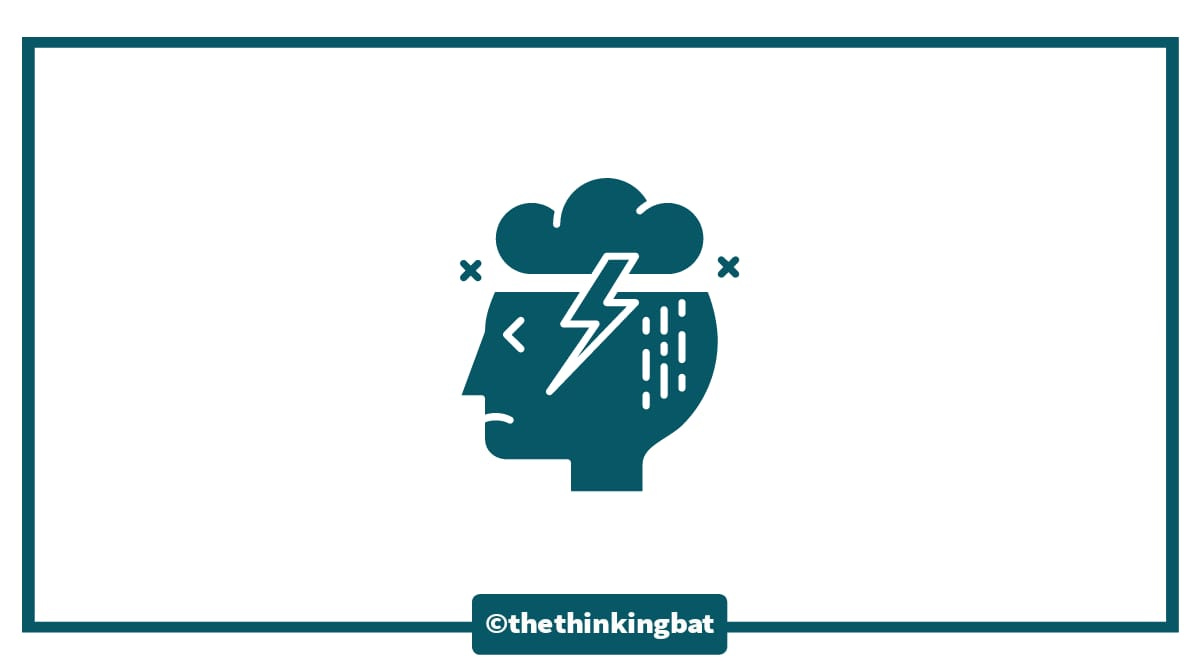"What's The Worst That Can Happen?"
A short antidote to stress and anxiety!
Some housekeeping notes before we start. I know I haven’t been writing as frequently on this newsletter as I used to. So to get back into the habit of writing I will be writing very short snippets around psychology, cognitive science, leadership, etc.
If you are receiving this in your promotions folder please make sure to move it to your primary folder. This will help the upcoming editions to land directly in your primary inbox.
Let’s talk about anxiety—the fear that something bad will happen, and you are losing control over things to prevent that from happening. The most natural response of people in situations like this is to avoid thinking those scary thoughts—the bad things that can happen to you.
I don't think trying to escape the fear or dreadful results is helpful. Sit down with a close friend or an open notebook and analyze that fear. A great piece of advice came from "How to stop worrying and start living" - think of the worst possible outcome and admit it happened.
Think about how bad it can get in detail while being reasonable to some degree. Face your fears, look them directly in the eye, and then do everything possible to not make them happen.
Imagine what you will do in that situation. Be as elaborate in your construction as you can. Think of all the people who will be affected by that outcome and how you will interact with them, how you will break this news to them, and play out the entire conversation and dialogues in your head.
Even though this essay is not an advice for clinical anxiety, journaling is medically proven to help with that and many other psychological disorders.
Two Benefits
The reason to do this exercise is to get rid of the anxiety you're dealing with. While interacting with your worst-case scenario, you will become more comfortable that even if you fail it will still be manageable. You will realize that your worst case in this situation is still not the worst thing that can happen to someone.
Not only will this exercise make you comfortable about your worst-case scenario but it will also help you have a more holistic plan moving forward. Your worst-case scenario might not have a high likelihood of happening, but it can still happen to you.
A good plan is where you can identify all the bad things that can happen to you and have a solution for them in place. You will have to think about all the contingencies and risks and have a solid plan that addresses them as well.
I have been following this mindset of granular planning for a long while but my belief in this strategy was reaffirmed after I read Extreme Ownership by Jocko Wilink and came to know that Navy Seal officers are recommended to have a similar planning procedure.
To conclude, don’t be afraid of thinking about the worst outcome. It’s already in the back of your head, and by suppressing it you are giving it more power. Confronting your fears is the biggest display of bravery in the modern world.
And always remember what Ra’s al Ghul said in Batman Begins:
“What you really fear is inside yourself.”




well i thought a lot about this
my worst case is like 60 percent in boards
and im not able to attend my JEE ADV exam or fail miserably
and im okay with that
my father is financially well off i will make money somehow
the only things tht will be broken will be my aspirations
but one thing has gone down hill
ever since doing this expt
i have kind of accepted that i am going to fail
and something will go wrong and i will procastinate
and i will see the day my dreams get shattered and im taking this alt path
where everything went to shit
and that is causing me to stay inside my head
and my procastination has significantly increased
damn